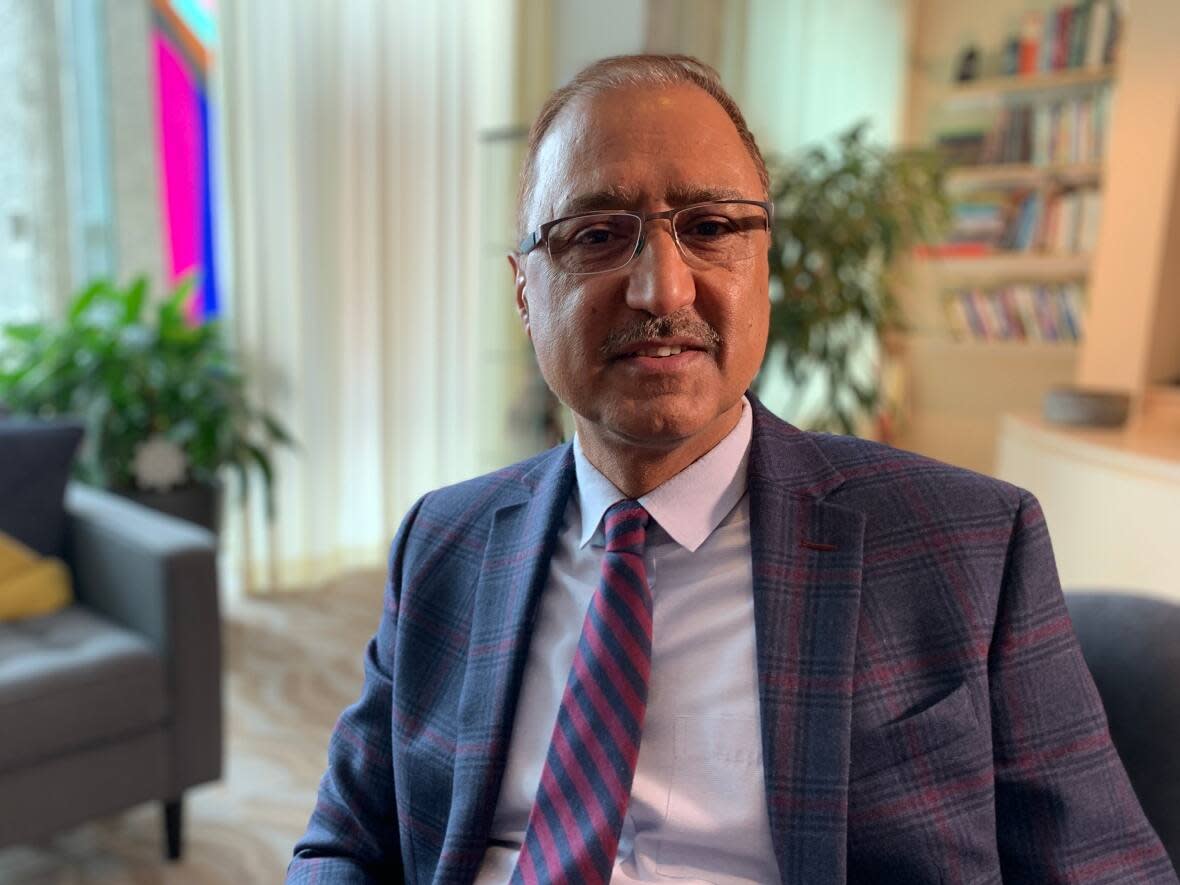Edmonton mayor aims to challenge status quo, build relationship with province in 2023

When Amarjeet Sohi gave his mayoral victory speech in October of last year, he spoke of the hard work it would take to build a better city for all.
His had been a remarkable journey: from immigrant bus driver to city councillor to federal minister and finally — with 45 per cent of the vote — to mayor.
The speech offered a litany of promises and thanks to his family, the previous council, and the electorate.
But Sohi also capped off his aspirational address with an appeal to the province.
"We need our provincial government to be our partner," he said from the pulpit; to fight COVID-19, to end homelessness, to support mental health, and to fight the drug poisoning epidemic.
Now at the close of 2022, Sohi ends his first full year as mayor, and he doesn't think the municipal-provincial partnership has always gone smoothly.
"I would say right on the onset of the relationship was good but then during the [spring budget], we did not get what we needed," he said during a year-end interview earlier this month.
"The relationship became a little fraught and tense."
In his first state of the city mayoral address in May, Sohi had centred his message on Edmonton deserving "a fair deal" from the province in a rhetorical echo of the former premier Jason Kenney's rallying cry against the federal government.
"It is my role is my responsibility to find ways to work with our partners at the provincial level and at a federal level. And I will continue to do so and whenever I see that our needs are being ignored," he said.
Sohi said there have been times the province stepped up, including matching federal funding to keep Albertan transit systems going and $12 million in October for wraparound services for affordable and supportive housing.
But the UCP has a new leader and, as a result, the province has a new premier: Danielle Smith. Sohi said she has made significant commitments that would add to municipal coffers.
"So far, the relationship is good. But it has to — I think let's see what happens in the budget."
Municipal budget
Sohi has just gone through his own budget challenges — three weeks of gruelling deliberations sometimes running 12 hours as city council combed through the municipal capital and operating budgets.
"This four-year budget is, I would say, the first significant undertaking that we've been working on for a while, and approval of this budget signals the direction that Edmontonians want us to go," Sohi said.
In budget deliberations, funding was added to areas that have been a priority for council: public transit, affordable housing and environmental initiatives.
When it came to final passage, however, about a third of councillors voted against approval.
Although Sohi would not speculate as to the reasons for that outcome, he noted the majority of council members supported the various amendments made to the budget.
The final property tax increase came to 4.96 per cent in 2023 and hovers in that range for the following three years. It's a steep difference from last council's low increases and 2021 tax freeze.
"I would say keeping taxes artificially low — that do not match population growth and inflation — might be admirable in the short term but it does pose challenges for the long term and we're seeing that," Sohi said.
"Now, we have to catch up."
Sohi said he's mindful that many are struggling now but if the municipality were not to invest in public services, they would either get cut or user fees would go up.
"That burdens the most struggling Edmontonians who are living in low income or fixed income."
Healthy tension
In a separate year-end interview, Edmonton Police Chief Dale McFee spoke about tensions between EPS and city council, which determines most of its funding.
Edmonton police previously said the proposed capital spending left many critical projects unfunded. Although multiple amendments were proposed to put additional funding toward IT and equipment, all were defeated.
Sohi said the service got its fair share of funding in the capital budget while the operating budget will be dealt with in the spring supplemental budget.
He said any tension is a healthy part of the democratic process.
"There will always be some tension between authorities and city council. And that tension is also between city council and city administration because our role is to challenge the status quo," he said.
"I don't want to create conditions anywhere where council members feel uncomfortable, not asking questions. It is our job to ask questions. And it is our job to ask tough questions."
Tensions between council and administration may mount in the coming years after the corporate body was given the task of shaving $60 million in inefficiencies off over the next four years — something Sohi recognizes as the city's biggest challenge going into the new year.
"That's going to be a huge challenge for us and the administration but I see there's an opportunity to build more collaborative approach and strengthen the relationship."


